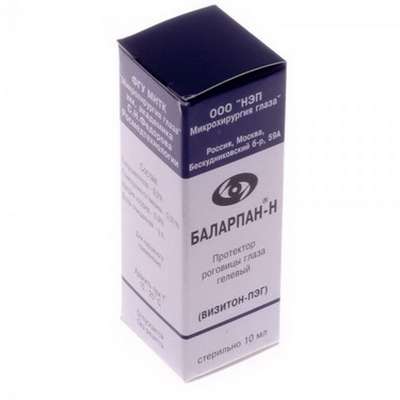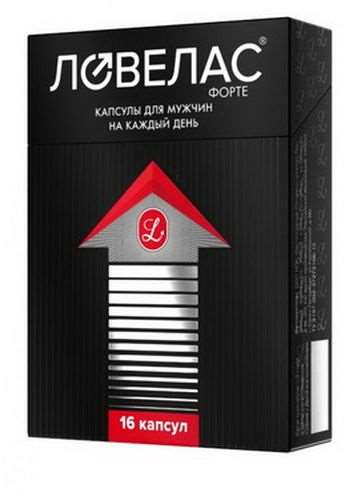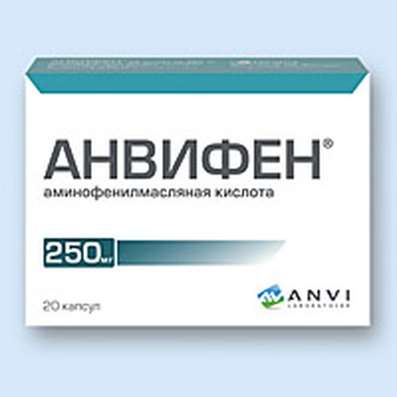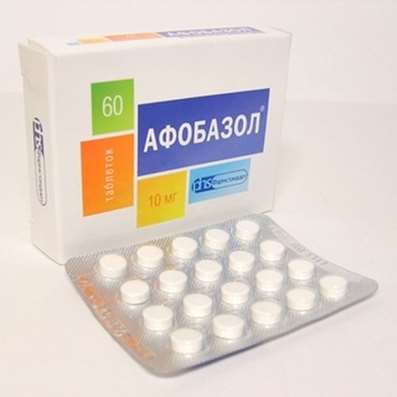Instruction for use: Ketolac
I want this, give me price
Active substance Ketorolac
ATX Code ņ“’ M01AB15 Ketorolac
Pharmacological group
NSAIDs - Acetic acid derivatives and related compounds
Nosological classification (ICD-10)
M54.5 Pain below the back
Pain in the lower back, Lumbar pain, Lumbalia, Painful conditions of the spinal column, Back pain, Lower Back Pain Syndrome
M79.1 Myalgia
Myofascial pain syndromes ,Pain syndrome in musculo-articular diseases, Pain syndrome in chronic inflammatory diseases of the musculoskeletal system, Pain in the muscles, Tenderness of muscles, Muscular soreness in severe physical exertion, Painful conditions of the musculoskeletal system, Pain in the musculoskeletal system, Pain in the muscles, Pain at rest, Muscle aches, Muscle pain, Musculoskeletal pain, Myalgia, Muscle pain, Muscle pain at rest, Muscle pain, Muscular pain of non-rheumatic origin, Muscle pain of rheumatic origin, Acute muscle pain, Rheumatic pain, Rheumatic pains, Myofascial syndrome, Fibromyalgia
R52.0 Acute pain
Acute pain syndrome, Acute pain syndrome with osteoarthritis, Acute pain syndrome of traumatic origin, Severe pain of a neurogenic nature, Severe pain, Pain syndrome at delivery
T14.3 Dislocation, sprain and damage to the capsular-ligamentous apparatus of the joint of the unspecified area of the body
Painful stretching of muscles, Pain and inflammation in tension, Dislocation of dislocation, Degenerative changes in the ligamentous apparatus, Edema due to sprains and bruises, Edema after interventions for sprains, Damage and rupture of ligaments, The musculoskeletal system is damaged, Damage to ligaments, Damage to the joints, Ligament ruptures, Tendon tendons,Ruptures of the tendons of muscles,Stretching, Crick, Stretching of the muscle, Sprain, Tension of the tendons, Extensions,Stretch muscles, Sprains, Tension of the tendons, Injury of the musculoskeletal system, Injuries to the joints, Injuries of capsule-articular tissues, Injuries of the osteoarticular system, Injuries to ligamentsInjuries to the joints, Joint wounds, Stretching of the ligamentous apparatus, Habitual stretching and tearing
T14.9 Injury unspecified
Pain syndrome after trauma, Pain syndrome with injuries, Pain syndrome with trauma and after surgery, Pain in case of injury, Pain of a traumatic nature, Joint pain with injuries, Postoperative and post-traumatic pain, Pain in case of injury, Pain of a traumatic origin, Severe pain syndrome of traumatic origin, Deep tissue damage, Deep scratches on the trunk, Closed injury, Minor Household Injuries, Minor skin damage, Violations of the integrity of soft tissues, Uncomplicated trauma, Extensive traumatic injury, Acute pain syndrome of traumatic origin, Edema with trauma, Postponed sports injuries, Post-traumatic pain, Soft tissue injuries, Joint wounds, Sports injuries, Injury, Traumatic pain, Traumatic pains, Traumatic infiltrate,Injuries to sports
Z100 * CLASS XXII Surgical practice
Abdominal surgery, adenomectomy, Amputation, Coronary angioplasty, Angioplasty of the carotid arteries, Antiseptic skin treatment for wounds, Antiseptic Hand, Appendectomy, atherectomy, Balloon coronary angioplasty, Vaginal hysterectomy, The coronary bypass, Interventions in the vagina and cervix, Interventions on the bladder, Intervention in the mouth, Restoration and reconstructive surgery, Hand hygiene of medical personnel, Gynecologic surgery, Gynecological intervention, Gynecological surgery, Hypovolemic shock during operations, Disinfection of purulent wounds, Disinfection of wounds edges, Diagnostic intervention, Diagnostic procedures, Cervical Diathermocoagulation, Long-surgery, Replacing the fistula catheters, Infection in orthopedic surgery, Artificial heart valve, cystectomy, Short-term outpatient surgery, Short-term operation, Short surgical procedures, Krikotireotomiya, Blood loss during surgery, Bleeding during surgery and in the postoperative period, Kuldotsentez, laser photocoagulation, laser coagulation, retinal laser coagulation, Laparoscopy, Laparoscopy in Gynecology, CSF fistula, Small gynecological operations, Small surgical procedures, Mastectomy and subsequent plastic, mediastinotomy, Microsurgical operations on the ear, Mukogingivalnye operation, suturing, Minor surgery, neurosurgical operation, Immobilization of the eyeball in ophthalmic surgery, testectomy, pancreatectomy, Perikardektomiya, The period of rehabilitation after surgery, The period of, convalescence after surgery, Percutaneous transluminal coronary angioplasty, Pleural thoracentesis, Pneumonia postoperative and posttraumatic, Preparation for surgical procedures, Preparation for surgery, Preparation of the surgeon's hands before surgery, Preparation of the colon for surgical procedures, Postoperative aspiration pneumonia in neurosurgical and thoracic surgery, Postoperative nausea, Postoperative bleeding, postoperative granuloma, postoperative shock, The early postoperative period, myocardial revascularization, Radiectomy, gastric Resection, bowel resection, uterine Resection, liver Resection, enterectomy, Resection of part of the stomach, Reocclusion of the operated vessel, Bonding tissues during surgical procedures, Removal of sutures, Condition after eye surgery, Condition after surgery, Condition after surgery in the nasal cavity, Condition after gastrectomy, Status after resection of the small intestine, Condition after tonsillectomy, Condition after removal of the duodenum, Condition after phlebectomy, Vascular surgery, Splenectomy, Sterilization of surgical instruments, Sterilization of surgical instruments, sternotomy, Dental surgery, Dental intervention in periodontal tissues, strumectomy, Tonsillectomy, Thoracic surgery, total gastrectomy, Transdermal intravascular coronary angioplasty, Transurethral resection, Turbinektomiya, Removal of a tooth, cataract surgery, Removal of cysts, tonsillectomy, Removal of fibroids, Removing the mobile primary teeth, Removing polyps, Removing broken tooth, Removal of the uterus body, Removal of sutures, Urethrotomy, Fistula likvoroprovodyaschih ways, Frontoetmoidogaymorotomiya, Surgical infection, Surgical treatment of chronic limb ulcersm, Surgery, The surgery in the anal area, The surgery on the colon, Surgical practice, The surgical procedure, Surgical interventions, Surgery on the gastrointestinal tract, Surgical procedures on the urinary tract, Surgical procedures on the urinary system, Surgical intervention of the genitourinary system, Surgical procedures on the heart, Surgical manipulation, surgery, Surgery on the veins, Surgical intervention, Vascular surgery, Surgical treatment of thrombosis, cholecystectomy, Partial gastric resection, transabdominal hysterectomy, Percutaneous transluminal coronary angioplasty, Percutaneous transluminal angioplasty, Coronary artery bypass, tooth Extirpation, Extirpation of milk teeth, pulpectomy, pulsative cardiopulmonary bypass, tooth Extraction, teeth Extraction, cataract extraction, Electrocoagulation, endourological intervention, episiotomy, Etmoidotomiya, Complications after tooth extraction
Composition and form of release
Tablets covered with a film membrane 1 tab.
ketorolac 0.01 g
in the package of cellless or contour cells 10 pcs; in a pack of cardboard 1 or 2 packs.
Description of dosage form
Film-coated tablets are white in color. In the cross-section are homogeneous.
pharmachologic effect
Pharmacological action - anti-inflammatory, antipyretic, antiaggregational, analgesic.
Pharmacodynamics
Inhibits COX (cyclooxygenase) and inhibits the synthesis of PG (prostaglandins).
Indications
Pain syndrome of moderate and strong severity:
postoperative pain;
pain in the joints with injuries with a rupture of ligaments, dislocations, sprains;
pain in the back and muscles.
Contraindications
hypersensitivity (including to acetylsalicylic acid and other NSAIDs);
polyps of the nose;
angioedema;
bronchospasm, bronchial asthma;
stomach ulcer and duodenal ulcer;
impaired renal function;
hypovolaemia, dehydration;
high risk of postoperative bleeding or incomplete bleeding;
violation of hematopoiesis;
hemorrhage in the brain;
pregnancy;
lactation (for the period of treatment it is necessary to stop breastfeeding);
early childhood (up to 2 years).
Side effects
Dry mouth, dyspepsia, pain in the digestive tract, nausea, vomiting, diarrhea, sensation of stomach overflow, peptic ulcer, gastritis, liver dysfunction, flatulence, black staining, constipation, rectal bleeding, stomatitis, headache, pallor, dizziness , nervousness, depression, drowsiness, asthenia, sweating, swelling, dyspnoea, asthma, impaired taste and vision, vasodilation, increased urination, oliguria, glomerulonephritis, nephrotic syndrome, acute renal failure, myalgia, urticaria, pruritus, purr pa.
Interaction
Incompatible with lithium preparations, pentoxifylline, probenecid, anticoagulants (in high doses), other NSAIDs. Reduces the diuretic effect of furosemide in persons with normovolemia. With simultaneous use with ACE inhibitors, the probability of renal dysfunction increases.
Dosing and Administration
Inside. The dose is selected individually, taking into account the severity of the pain syndrome.
Single dose - 10-30 mg, the frequency of administration - up to 4 times a day (every 6-8 hours).
The maximum daily dose for elderly patients is 60 mg.
Course - no more than 7 days.
Precautionary measures
Caution is used for violations of the liver, kidneys, bone marrow, erosive and ulcerative lesions of the gastrointestinal tract in history, congestive heart failure, bronchial asthma, bronchoobstructive syndrome in history. Patients with blood clotting disorder are appointed only with a constant control of the number of platelets, especially this is important for postoperative patients requiring careful hemostasis. Possible appearance during the treatment of drowsiness, dizziness, insomnia or depression necessitates the use of caution during employment by potentially dangerous activities requiring increased attention and speed of psychomotor reactions (for example, driving vehicles).
storage conditions
In a dry, the dark place at a temperature of no higher than 30 į C.
Keep out of the reach of children.
Shelf life
2 years.
Do not use after the expiry date printed on the package.

 Cart
Cart





